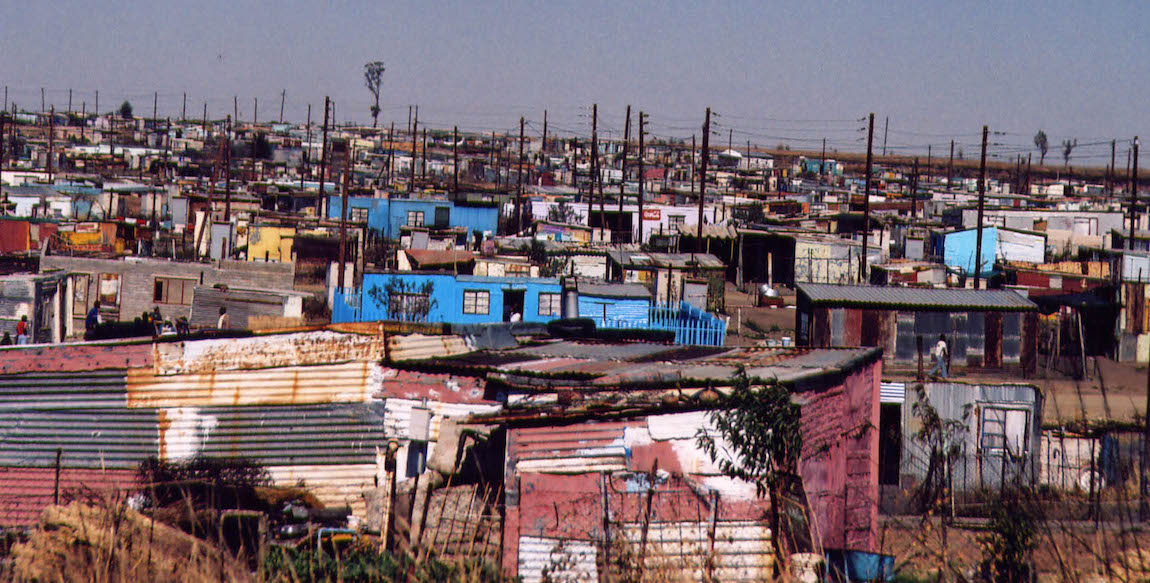Umuntu Ngumuntu Ngabantu or “I am because you are” is how we describe the meaning of Ubuntu. It speaks to the phenomena that we are not alone but rather we are all connected and that one can only grow and progress through the growth and progression of others. Ubuntu has since been used to explain the desire, need and importance of human connections.
Life in our South African townships is characterised by the sense of togetherness and Ubuntu. The people hug, share gossip and connect with a sense of togetherness. The sight of people playing musical instruments against the backdrop of object poverty gives a sense of hope and perhaps more importantly an escape. This sense of togetherness gives many in our townships a sense of relief from the true pain given to them by poverty: the pain that many who are not in poverty only read about yet fail to understand. The sense of “I am because you are” brings a sense of healing to this poverty.
The covid-19 pandemic, however, has bought a shift in the manner in which Ubuntu is practised. “Keep your distance, stay indoors, cover your smile”… are all elements that challenge the way of being in our townships. “I need my neighbour to survive” is a sentiment held in our townships. However, the Covid-19 pandemic argues “you must self-isolate to survive”. It is simple right? To combat Covid-19 all people must: Stay at home, expect home is a hole of poverty and distress. Observe social distancing; expect there are 8 of us in this one-room squalor. Wash your hands, but we haven’t had running water for years. Go out only to go shop for essentials, but they closed the spaza shops, and when we go to the supermarkets the cops shoot at us and soldiers torture us. It is not that we willingly disobey Covid regulations; it is that we are unable to comply with them.
If anything Covid-19 and the lockdown has shown the gross inequalities in South Africa and how privilege has made those who sit in their lounges insensitive by making disparaging comments about people still queuing for food and not social distancing or decrying those who cannot and will not stay within the confines of their home.
Given the economic divide in South Africa, one needs to re-evaluate the effectiveness of global measures such as social distancing and lockdowns in black townships where people live in close proximity, economically disadvantaged, lack basic amenities and must go out every day to earn a living or face starvation. Media reports have represented people from townships as defying government orders. Having grown up in a township, I fully understand the difficulties, which are more structural than behavioural, that are impacting the populace residing in townships across the country.
While it has been established and concluded that social distancing is the only way that we can effectively fight this giant we are facing, it is also critical for us to understand why this is challenging a significant portion of our society and how these challenges will manifest themselves. During the lead-up to the lockdown period in the country, panic and bulk-buying was a strong feature of how people (with the means to do so) were preparing for the lockdown. This was mostly possible for those formally employed or who had “rainy-day” savings to fall back on. If, however, you were not within this bracket and potentially living on a hand-to-mouth basis this period spelt extreme challenges, difficult to truly fathom by looking at them from the outside. It is thus clear that the restriction of movement, for a person who earns their livelihood from a day-to-day basis (no-work, no-pay principle), is highly challenging. Those affected include hawkers, mechanics, artisanal bakers of fat cakes and scones, builders, handymen, and other freelancers who need movement to earn a living. With the current policies in place, they now have no way to make this happen. If these people do not have some savings, or government initiative/programme to tie them over then social distancing while possible, will not be easy for them, as the threat of hunger overshadows the willingness to comply.
Measures developed in China and the West to curtail the spread of the Covid-19 pandemic cannot be easily transferred and applied to Africa. Though preventive, these approaches are elitist and require a measure of wealth financial security. People living in South African’s black townships face the choice of staying at home and starving or going out to earn a living and risk being infected.
With all this being said, there is light at the end of the tunnel: It may not be as bright, but it is there. Township residents have throughout our history shown great resilience and ingenuity in the most difficult times. It is this sense of Ubuntu that will heal our townships and South Africa at large. The people will once again hold hands, sing and dance together.
Sibonelo is an Intern at IJR. She holds an honours degree in Communication Science (Cum laude). She believes that effective communication is the one of the greatest tools in building understanding amongst members in society.
The views expressed in this article are the author’s own and do not necessarily reflect The Daily Vox’s editorial policy.









